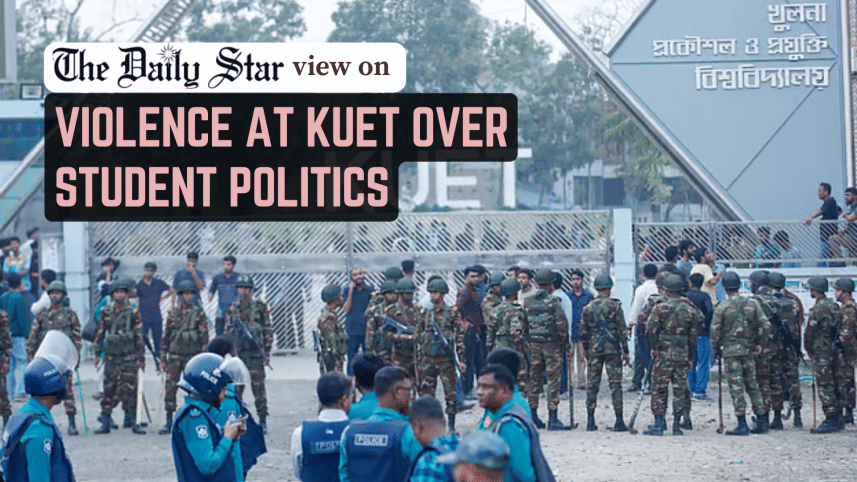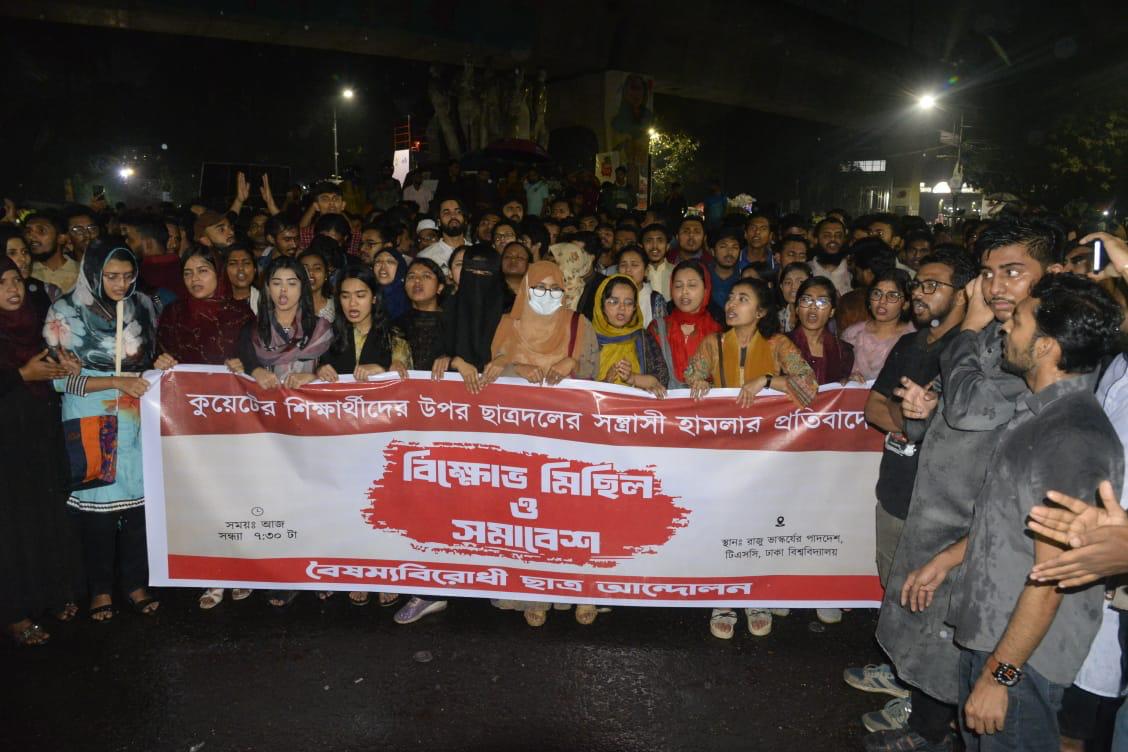We must prevent the resurgence of toxic student politics

We are deeply alarmed by what happened on Tuesday on the campus of Khulna University of Engineering and Technology (KUET) and the subsequent tensions spreading across multiple universities. The violent clashes between activists of Jatiyatabadi Chhatra Dal (JCD), the pro-BNP student wing, and the Students Against Discrimination platform—leaving about 50 injured—signal a troubling return to the age-old toxic student politics that long vitiated our campuses. At a time when the nation eagerly awaits a shift in our political culture after 15 years of autocratic rule by Awami League, and amid ongoing commitments by political parties to building a "new Bangladesh," this development is both shocking and disheartening. It shows that, unless checked, the ghosts of the past may easily resurface and undo our hard-earned progress.
There are conflicting accounts about who initiated the violence and the identities of those involved, with JCD blaming Chhatra Shibir's influence under the banner of the student platform. But this only adds to the confusion surrounding the shifting political allegiances and narratives in the wake of the July uprising. According to our report, tensions had been brewing at KUET over JCD's campaign to lift the existing ban on student politics, leading to protest rallies by anti-discrimination activists. Then on Tuesday afternoon, both groups faced off, resulting in a series of clashes, chases, and counter-chases that lasted until the evening. By then, photos of men wielding large scythes and machetes, as well as injured students, went viral on Facebook. Later, Jubo Dal, BNP's youth wing, expelled Mahbubur Rahman, vice-president of its Daulatpur unit in Khulna, after he was seen brandishing a sharp weapon.
At a time when the nation eagerly awaits a shift in our political culture after 15 years of autocratic rule by Awami League, and amid ongoing commitments by political parties to building a "new Bangladesh," this development is both shocking and disheartening. It shows that, unless checked, the ghosts of the past may easily resurface and undo our hard-earned progress.
By now, we know about the protests and showdowns that followed the KUET incident, including at Dhaka University, Jahangirnagar University, Chittagong University, Rajshahi University, and Jagannath University. On Wednesday afternoon—after an ultimatum from KUET students demanding a complete ban on student politics, punishment for the attackers, and the resignation of top officials—the university authorities decided to prohibit all forms of political activities on campus. Students found engaging in politics will face permanent expulsion, while teachers, staff, and officials are also barred from any political involvement. A four-member committee has been formed to investigate Tuesday's violence, including the role of outsiders. All academic activities will also remain suspended until February 28.
While we welcome the prompt response by KUET authorities, it is not enough to defuse the tensions brewing within the wider community of politically minded students. The bellicose rhetoric from some student leaders is only making matters worse. If this is a preview of what lies ahead, it is deeply disturbing. This calls for a sober reflection by all parties involved, including the warring student factions. While we support the emergence of a new student-led party and acknowledge that differences of opinion are natural, all parties must ensure that their activities do not harm the interests of general students. The student politics of old has no place in post-uprising Bangladesh.



 For all latest news, follow The Daily Star's Google News channel.
For all latest news, follow The Daily Star's Google News channel. 

Comments